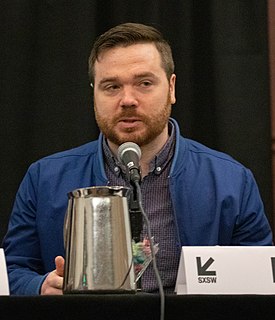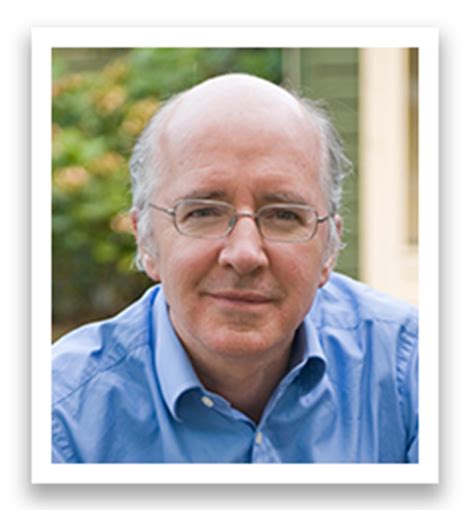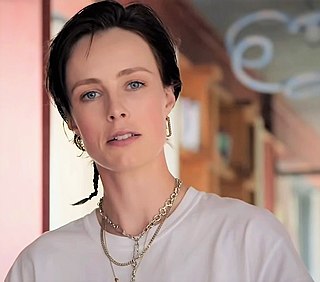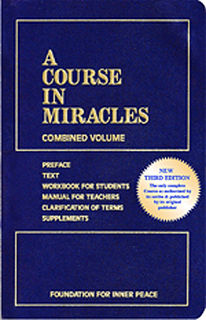A Quote by Kevin Roose
I think the style Plimpton popularized - the dive-in, try-it-yourself journalism - is appealing and useful for a number of reasons, not the least of which is the value of an outsider's view into a little-known or misunderstood subculture. I tried to do the same thing with my book - tap into a pocket of American life that few people have any idea about, and tell the real, unvarnished truth about it in a way that was open-minded and authentic.
Quote Topics
About
American
American Life
Any
Appealing
Authentic
Book
Dive
Few
Few People
Idea
Journalism
Known
Least
Life
Little
Minded
Misunderstood
Number
Open
Open-Minded
Outsider
People
Pocket
Real
Reasons
Same
Same Thing
Style
Subculture
Tap
Tell
Thing
Think
Tried
Truth
Try
Useful
Value
View
Way
Which
Yourself
Related Quotes
For a long while, I found Parker impossible. He went away for 23 years. I tried to bring him back a few times, and I sort of figured out where he came from, why he went away, and why he came back. The thing that I have to tap into for Parker is in some way the outsider. If I can tap into the outsider, I can write about Parker, and if I can't, I can't.
There is a very big difference between American and British travel journalism, and that's this whole business of the assisted or freebie trip. In Britain we are unashamed about any travel company paying for you to go and then writing about it. That's the only way we can do it. But I have tried the same in the States, and I can't write for any sizeable American newspaper because they tell you to do it on this basis.
I got in journalism for any number of reasons, not least because it's so much fun. Journalism should be in the business of putting pressure on power, finding out the truth, of shining a light on injustice, of, when appropriate, being amusing and entertaining - it's a complicated and varied beast, journalism.
Distinguish open-minded people from closed-minded people. Open-minded people seek to learn by asking questions; they realize that what they know is little in relation to what there is to know and recognize that they might be wrong. Closed-minded people always tell you what they know, even if they know hardly anything about the subject being discussed. They are typically made uncomfortable by being around those who know a lot more about a subject, unlike open-minded people who are thrilled by such company.
There's a thing in the U.K., particularly in London, where it's kind of the idea of subculture and counterculture and the outside and the idea that it's great to be a freak and the freak always wins. So I think English girls are a lot less scared of being the freak or looking like an idiot. To be the outsider is actually a great thing in England. I don't know - I'm not American. But I think the majority of American teenagers don't want to be the freak.
There have been a number of philosophers who have reveled in the dismantling of truth. I think they did so with good ethical motives, and for good philosophical reasons. I can see the sense in what they were talking about; the idea that truth is often claimed by elites in order to further certain agendas. They crowd-out alternative perspectives - particularly those of the powerless. But the undermining of truth contributed - in the weird, indirect way that philosophy contributes to the culture - to a rejection of the idea of truth as having any kind of proper meaning at all.
If you walk into a room and one hundred people say, 'You are a lovely, beautiful person', who isn't going to be affected by that? But you have to tell yourself not to value that. You have to tell yourself - or at least I do - to not become accustomed to hearing applause in any way, because I think that's dangerous.
For me it's a dedication to your real interests. It's an ability to be open-minded. Without an open-minded mind, you can never be a great success. The great artists have been open-minded, even though they may seem, like Picasso, to be very directed, you can be directed and open-minded at the same time. I think you have to be really intensely serious about your work, but not so serious that you can't see the lightness that may also involve your life. You have to have that lightness too. You have to not be so heavy-handed and so ostentatious. It's very important not to be.
I think you reveal yourself by what you choose to photograph, but I prefer photographs that tell more about the subject. There's nothing much interesting to tell about me; what's interesting is the person I'm photographing, and that's what I try to show. [...] I think each photographer has a point of view and a way of looking at the world... that has to do with your subject matter and how you choose to present it. What's interesting is letting people tell you about themselves in the picture.
It's very difficult to measure the impact on policy of any investigative journalism. You hope it matters to let a little more truth loose in the world, but you can't always be sure it does. You do it because there's a story to be told. I can tell you that the job of trying to tell the truth about people whose job it is to hide the truth is about as complicated and difficult as trying to hide it in the first place.
Many people who call themselves deflationists are deflationists about propositional truth but not about sentential truth. I only ever mention that view to distinguish it from disquotationalism. I don't really have any objection to it, other than that I don't believe in propositions, so I don't think there's any such thing as a proposition's being true. Truth, on my view, is primarily a property of representations, such as sentences and certain kinds of mental states.
In my case, I made the decision early on that I was going to be very open about the book and claim upfront that each of the stories was based on my life experience. I think my reasoning goes back to what I was saying earlier, about wanting the book to be "more than a book," that I wanted the reader to feel a little unsettled about what they were reading: there's a core of factual truth here.
Start telling the truth now and never stop. Begin by telling the truth to yourself about yourself. Then tell the truth to yourself about someone else. Then tell the truth about yourself to another. Then tell the truth about another to that other. Finally, tell the truth to everyone about everything. These are the Five Levels Of Truth Telling. This is the five-fold path to freedom.

































